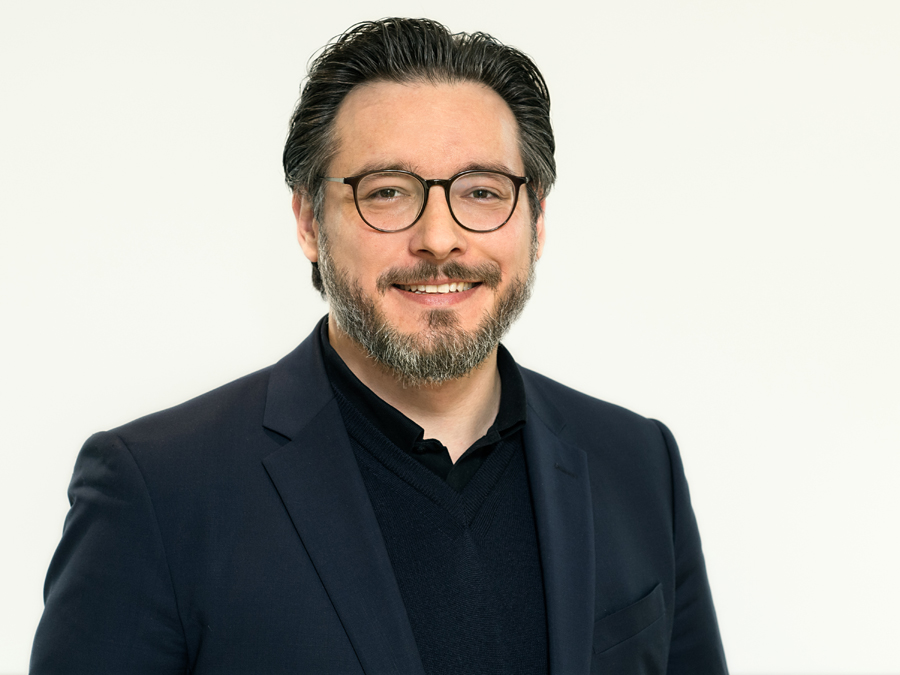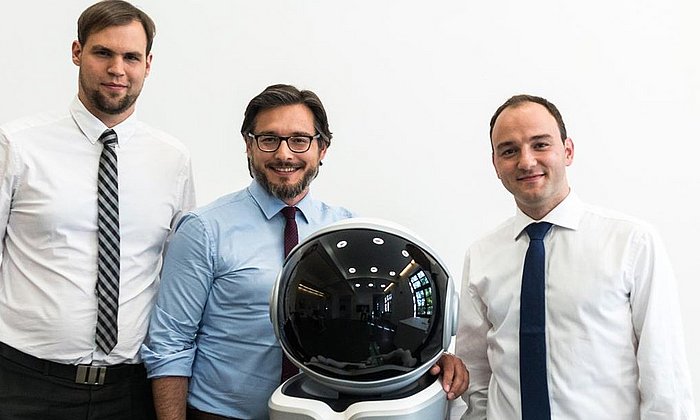Official launch of TUM's Munich School of Robotics and Machine Intelligence (MSRM)
Artificial intelligence and robotics under one roof

Research in robotics and artificial intelligence goes back a long way at TUM. More than 30 professorships in various faculties are currently involved in this area, with key competencies contributed by the Departments of Informatics, Mechanical Engineering and Physics as well as Electrical and Computer Engineering.
The establishment of MSRM – approved at the end of 2017 – research activities spread over various sites are now assembled under one roof at the heart of Munich in the former paper engineering institute in Hess-Strasse. MSRM is an Integrative Research Center that expands specialized, interdisciplinary leading-edge research within a coherent program under an overarching institutional structure.
Serving as the school's founding director is Sami Haddadin, a professor of robotics and system intelligence with a joint appointment to the departments of Electrical and Computer Engineering and Informatics. Prof. Haddadin was recently honored for his research with the German Federal President's Award for Innovation in Science and Technology.
Three central research fields: health, work, mobility
At MSRM, artificial intelligence and robotics will be combined in the new research field of machine intelligence, initially with three main fields of activity: 1) "The future of health", with a focus on support for older people through robotics and artificial intelligence (geriatronics) 2) "The future of work", where the priority is robot learning and safe robot assistants; 3) "The future of mobility", and especially autonomous transport systems.
Outlining his plans for the new school, Prof. Haddadin explains, “The results of fundamental research will be turned into real-world applications in areas important to society. We will work with partners in industry and start-ups to try out our developments and innovations under everyday conditions and hand them over to the implementation stage.”
Expansion and cooperation
To expand the MSRM, seven more academic appointments are planned at present, for example in nanorobotics, i.e. the development of tiny machines with applications in medicine, among other fields. TUM is already laying important groundwork in that area, including the development of DNA-based nanomachines at the Chair of Experimental Biophysics.
Robotics and artificial intelligence are the defining elements of machine intelligence and will be of enormous importance to the future of society. For that reason, MSRM will cooperate closely with the Munich Center for Technology in Society (MCTS), an established Integrative Research Center at TUM. It is dedicated to the study of how societal change can be responsibly managed through technology.
Munich: a leading center for artificial intelligence
Prof. Wolfgang A. Herrmann, the President of TUM, sees the MSRM project in the role of a lighthouse: "With the establishment of MSRM, TUM is adding to its outstanding competencies in robotics and artificial intelligence. The coordinated, interdisciplinary cooperation will facilitate entirely new developments. With strong partners from the worlds of industry and research, we have the right conditions to turn the Munich region into the European center for robotics and machine intelligence." The industry advisory council will be chaired by the physicist Prof. Edward G. Krubasik, a former member of the Executive Committee of Siemens AG (1997-2006) and the current vice president of the Deutsche Physikalische Gesellschaft.
Further Information:
- Munich School of Robotics and Machine Intelligence (MSRM)
- Munich Center for Technology in Society (MCTS)
- Research Centers at TUM
- Department of Electrical and Computer Engineering
- Department of Informatics
Contact:
Prof. Dr. Sami Haddadin
Technical University of Munich
Chair of Robotics and Systems Intelligence
sami.haddadin@tum.de
Technical University of Munich
Corporate Communications Center
- Paul Hellmich
- paul.hellmich@tum.de
- presse@tum.de
- Teamwebsite
